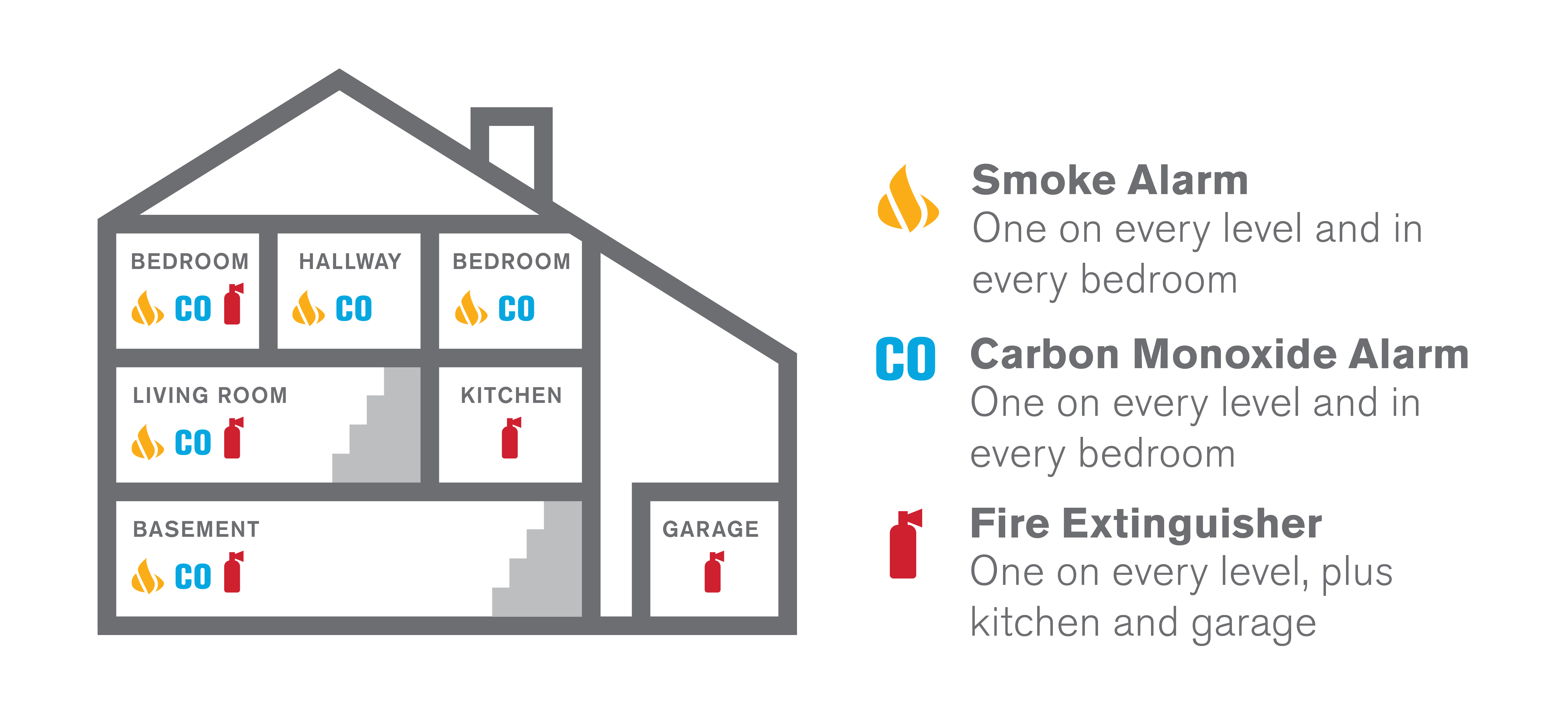Fire Safety – Why Early Detection Matters
Did You Know?
Fire Prevention Week is the perfect time to talk with your whole family about fire safety – include testing alarms, changing the batteries or upgrading to 10-year sealed battery alarms, how to use a fire extinguisher, and escape route planning.
* 3 of every 5 home fire deaths resulted from fires in homes with no working smoke alarms
* Less than 50% of homeowners have an escape plan
* Carbon monoxide (CO) is the #1 cause of accidental death
* 60% of consumers do not test their smoke and CO alarms monthly*
* Only 47% of people report having CO alarms in their home
* Just 43% of homeowners have an escape plan*
* Unattended cooking is the #1 cause of home fires
Are You Ready at Home?
Having functioning alarms installed throughout your home is the first line of defense for fire prevention. They work around the clock to provide your family with an early alert in the event of an emergency, providing you time to safely escape. Smoke and CO alarms should be placed on every level of the home, including the basement, as well as inside and outside each bedroom. Fire extinguishers should also be placed on every level of the home, especially in the kitchen and garage.
Why Early Detection Matters
Smoke and carbon monoxide alarms are your family’s first line of defense when it comes to a fire or CO emergency. Having properly working alarms can help provide you and your family with an early alert, giving you time to safely escape.
Early Detection for Your Home
Smoke Alarms
Smoke alarms provide early warning in the event of an emergency.
Carbon Monoxide Alarms
Carbon monoxide alarms are the only way to detect CO in your home and provide early warning to this deadly gas.
Placement and Maintenance
Just having smoke and CO alarms is not enough. You also need to ensure they are properly placed throughout your home and functioning correctly. Smoke and CO alarms should be placed on every level of your home, including the basement, as well as inside and outside each sleeping area. Be sure to test your alarms regularly and replace the batteries every six months, unless you 10-year sealed battery alarms. Smoke alarms should be replaced every 10 years and CO alarms should be replaced every 5 to 7 years.
Smoke and CO alarms work around the clock, day and night, to alert you and your family to a fire or CO emergency. Help protect what matters most by installing early detection in your home.
Having alarms is the first step to protecting your family, the next is to create an emergency escape plan to help your family safely escape. Download an escape planning worksheet to help teach your children!
Source: National Fire Protection Association

